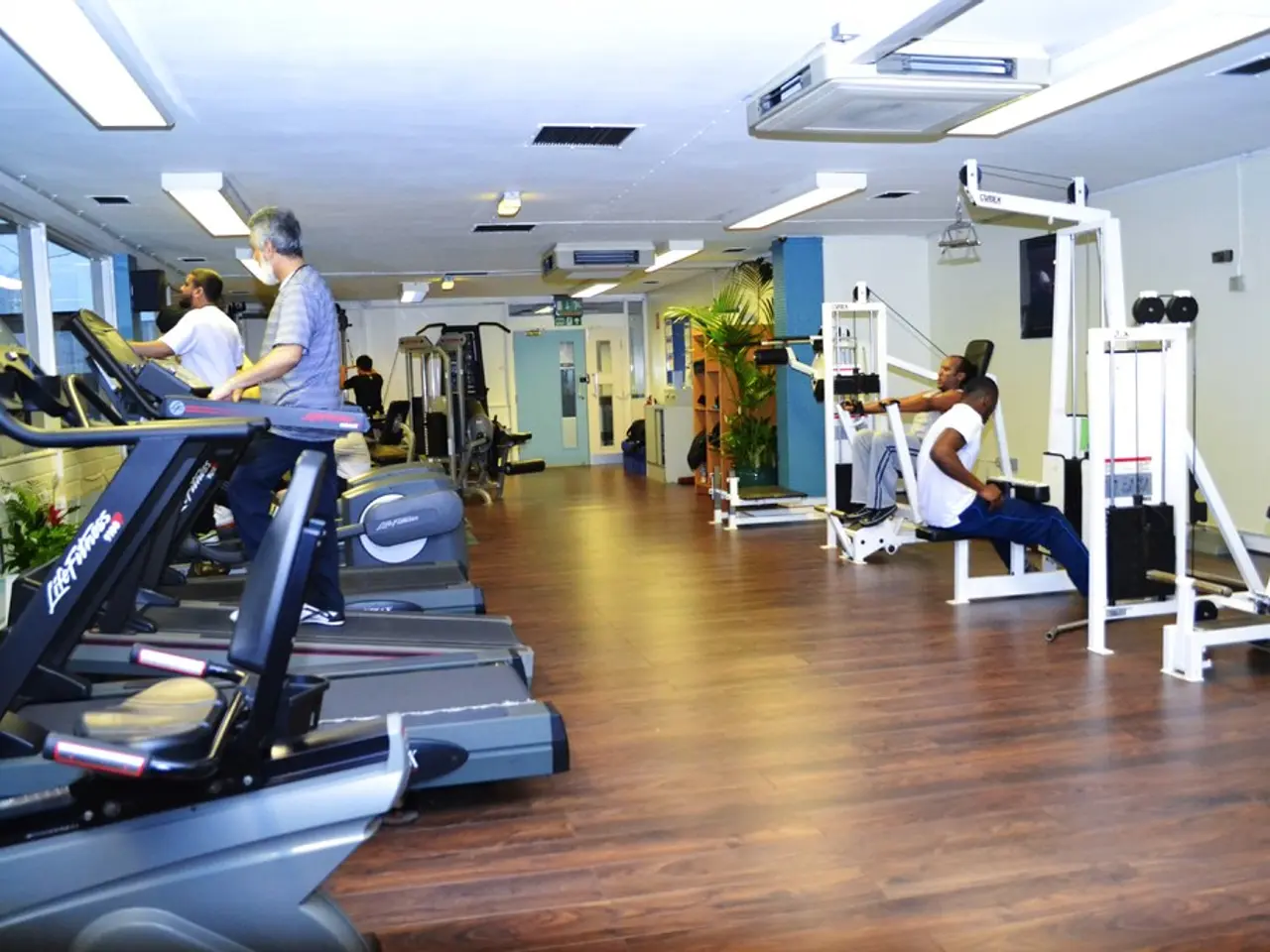Functionality Training's Rise and Beginner's Guide
Starting Your Functional Fitness Journey: A Beginner's Guide
Functional fitness is a popular trend in the fitness industry, focusing on movements that mimic everyday life to improve daily function, injury resilience, and overall fitness. As a beginner, it's essential to focus on basic movement patterns and proper form to ensure a safe and effective workout.
Learning the Foundations
To get started with functional fitness, master foundational movements like squats, lunges, push-ups, planks, and hip bridges. Begin with bodyweight exercises to learn correct movement and build stability. Aim to emphasize quality of movement over quantity, ensuring proper form to avoid injury.
Sample Weekly Workout Plan
For beginners, a sample weekly workout plan includes:
- Day 1: Full Body Strength Training
- Day 2: Cardiovascular and Mobility Training
- Day 3: Rest or Active Recovery
Progressing in Your Workout
As you become comfortable, gradually incorporate light weights or resistance bands to increase challenge. Keep sessions manageable (under an hour), include rest periods, and stretch afterward. Track your workouts to monitor progress and maintain consistency.
Functional Fitness in Daily Life
Functional fitness has expanded beyond the gym and can be incorporated into daily routines. By focusing on compound movements that work multiple muscle groups simultaneously, functional fitness can contribute to weight loss when combined with a balanced diet and consistent workouts.
Safety First
Remember, safety is crucial when starting any new fitness regimen. Seek help from a certified personal trainer or follow instructional videos online if unsure about form and posture. Proper form and posture when performing functional fitness exercises are essential to avoid injury and ensure the right muscles are engaged.
The Benefits of Functional Fitness
Regular practice of functional fitness can lead to improved posture, as many exercises engage core and back muscles essential for maintaining good posture. The benefits of functional fitness also include improved mobility, enhanced core strength, injury prevention, better cardiovascular health, increased energy, and mental clarity.
Functional fitness can help improve everyday activities such as carrying heavier groceries without strain, playing with kids without feeling winded, or completing physical tasks at work with greater ease.
As progress is made, the intensity of functional fitness workouts can be increased by adding weight, increasing sets or reps, or incorporating more complex exercises like kettlebell swings or deadlifts.
Integrating Functional Fitness into Your Life
Integrate movement patterns into daily life for additional functional fitness benefits. Functional fitness encourages a mindset shift, focusing on the body's ability to perform, feel, and move in the world around you, rather than short-term goals like weight loss or muscle building.
In summary, functional fitness for beginners involves learning fundamental, multi-joint movements first with bodyweight, then slowly increasing complexity and resistance as technique and confidence grow. Embrace this new trend and reap the benefits of a more functional, fit, and healthy lifestyle.
- Start with foundational movements like squats, lunges, push-ups, planks, and hip bridges to master the basics of functional fitness.
- Begin with bodyweight exercises to learn correct movement and build stability, focusing on quality over quantity.
- Incorporate light weights or resistance bands as you become comfortable with your exercises to increase the challenge.
- Keep sessions manageable, lasting under an hour, with rest periods and stretching afterward for proper recovery.
- Improve your posture by engaging core and back muscles through regular functional fitness practice.
- Lose weight and improve mobility by combining functional fitness exercises with a balanced diet and consistent workouts.
- Focusing on compound movements that work multiple muscle groups simultaneously can help you complete physical tasks at work with greater ease.
- Seek help from a certified personal trainer or follow instructional videos online to ensure proper form and posture to avoid injury.
- Incorporate functional fitness into your daily routines to reap its benefits and shift your mindset towards the body's ability to perform and move in the world around you.
- As progress is made, increase the intensity of your workouts by adding weight, increasing sets or reps, or incorporating more complex exercises.
- Embrace functional fitness to lead a more functional, fit, and healthy lifestyle, with improved endurance, flexibility, cardio, and overall fitness.




